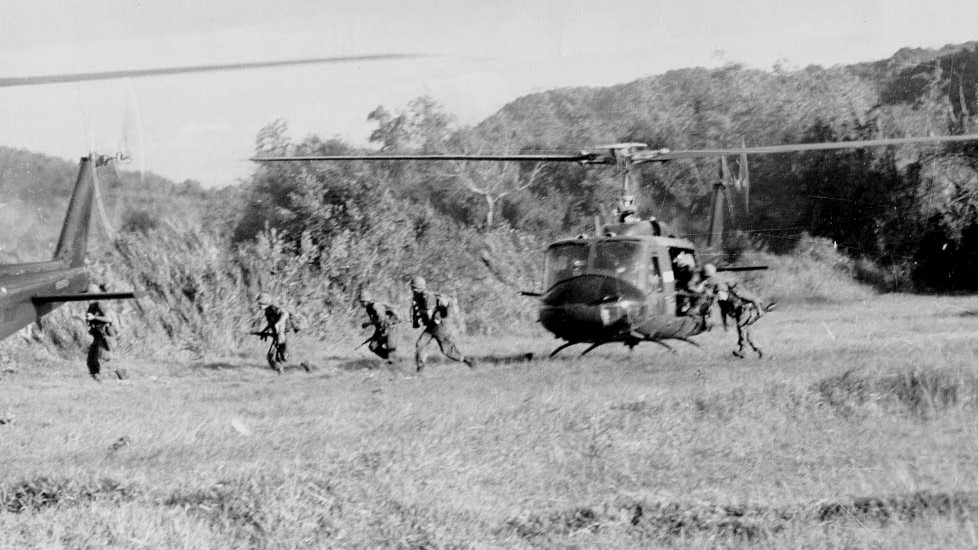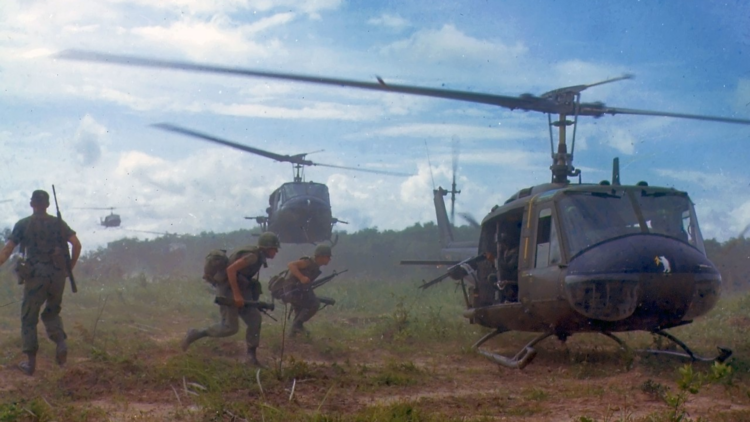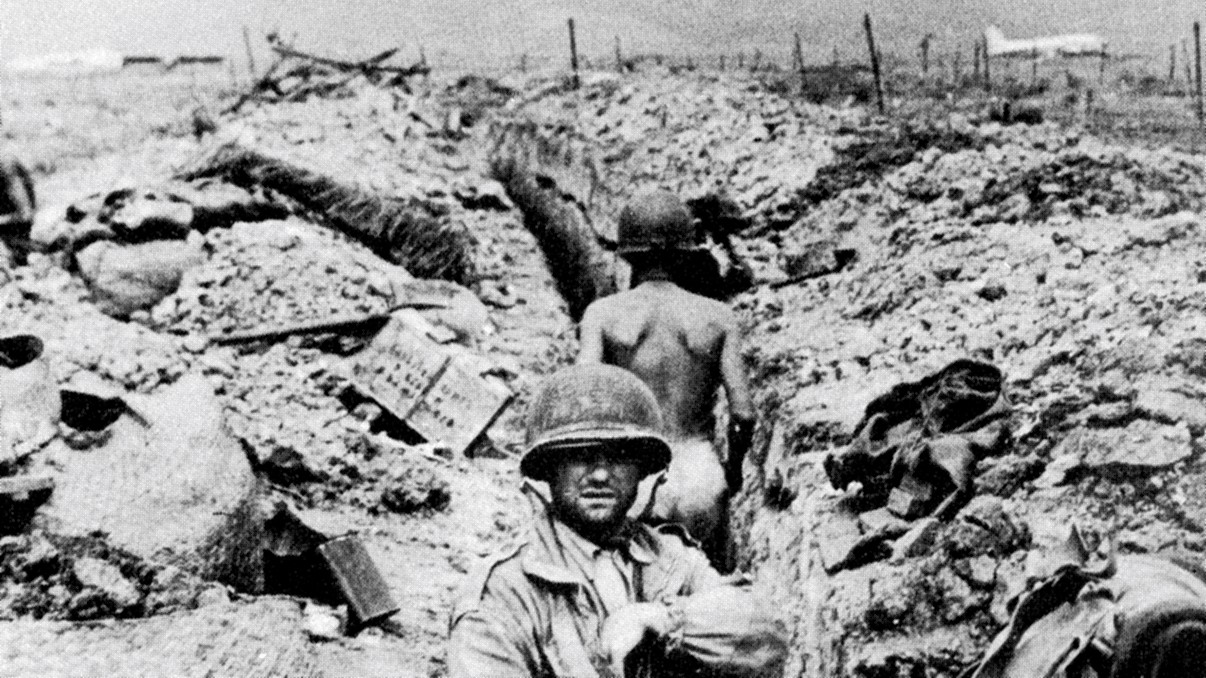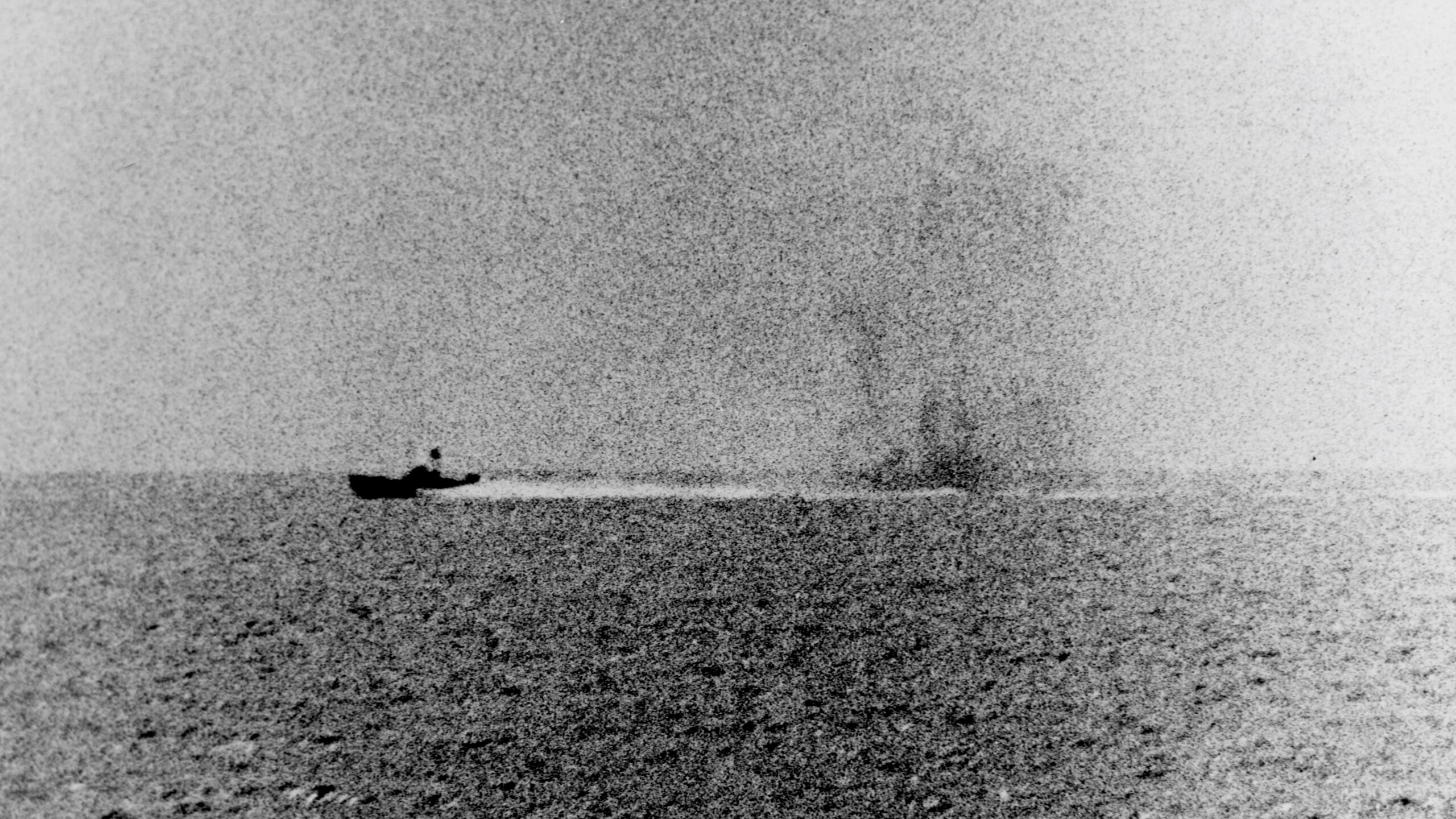3. Ia Drang: Baptism by Fire for the US (1965)
The Battle of Ia Drang Valley in November 1965 was a brutal initiation for US troops into the realities of the Vietnam War.
Fresh off the heels of increased US involvement, American forces, relying heavily on air mobility with helicopters, were inserted into the Ia Drang Valley to engage the North Vietnamese Army (PAVN).
What they encountered was a well-entrenched and determined enemy.

The ensuing battle was a desperate struggle for control of the valley, characterized by fierce close-quarter combat and heavy casualties on both sides.
Though ultimately a stalemate, Ia Drang shattered the myth of a quick victory and served as a stark reminder of the North Vietnamese Army’s capabilities and the unrelenting nature of the conflict.
The battle also highlighted the effectiveness of US air mobility tactics, which would become a cornerstone of American strategy throughout the war.
4. Tet Offensive: A Psychological Turning Point (1968)
The Tet Offensive, launched by the North Vietnamese and Viet Cong in January 1968, was a surprise attack on major South Vietnamese cities, including the capital, Saigon.
While the communists suffered a military defeat, Tet had a profound psychological impact on both sides of the war.
The boldness of the attacks exposed the vulnerability of South Vietnam and fueled growing anti-war sentiment within the US.

Images of the Tet Offensive beamed directly into American living rooms through news broadcasts portraying the war’s brutality in a way never seen before.
The offensive further eroded public support for the war in the US, fostering a sense of disillusionment and contributing to the eventual withdrawal of American troops.
5. Fall of Saigon: A Bitter End (1975)
The Fall of Saigon in April 1975 marked the final chapter of the Vietnam War.
North Vietnamese forces, having steadily gained momentum throughout the previous years, launched a full-scale offensive against South Vietnam.
The South Vietnamese capital, Saigon, quickly fell to the communist forces, forcing a chaotic US evacuation.
The now-iconic image of helicopters evacuating personnel from the US embassy roof became a symbol of defeat and the war’s tragic culmination.
The Fall of Saigon not only signified the end of American involvement but also the reunification of Vietnam under communist rule. It marked a definitive shift in the geopolitical landscape of Southeast Asia.
Lessons Learned
The Vietnam War’s battles serve as more than just historical footnotes.
They provide valuable lessons for military strategists and policymakers alike. Crucial takeaways include the importance of understanding the terrain, the enemy’s resolve, and the limitations of military force. Furthermore, emphasized the importance of clear political objectives and public support for long-term military engagements.
Today, the war’s ripple effects continue to be felt not just in Vietnam but across the globe.
In an age of renewed geopolitical tensions, the lessons learned from the Vietnam War hold valuable insights for navigating the complexities of modern warfare and fostering international cooperation.
The echoes of the jungle serve as a powerful reminder of the human cost of conflict, as well as the importance of pursuing diplomacy and peaceful resolution to conflicts.












COMMENTS